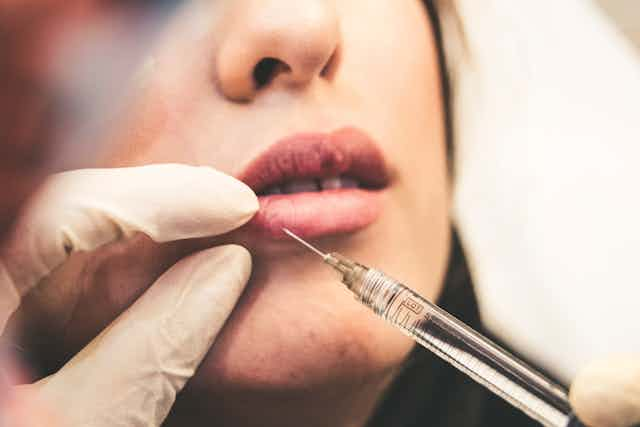Invasive Surgery Psychological Screening: Why It Is Needed to Prevent Post-Surgery Complications
Invasive Surgery Psychological Screening: Why It Is Needed to Prevent Post-Surgery Complications
Blog Article
An Alternative Approach to Plastic Surgery: Why Mental Checks Matter
In recent times, the significance of incorporating psychological assessments into the plastic surgery procedure has actually obtained boosting focus. A holistic approach not only deals with the physical elements of surgical treatment yet also highlights the psychological readiness of the client, which is essential for accomplishing preferred results. Understanding inspirations, identifying possible mental health and wellness issues, and establishing sensible expectations can exceptionally influence fulfillment degrees. The combination of these psychological checks elevates crucial questions regarding the ethical duties of medical care suppliers and the effects for client care. As we discover this topic, the intricacies end up being increasingly noticeable.
Comprehending Psychological Readiness
Prior to undertaking plastic surgery, it is important for individuals to evaluate their emotional preparedness, as this analysis can substantially affect both the decision-making process and the general end results of the procedure. Emotional preparedness incorporates an individual's psychological security, coping mechanisms, and sensible assumptions relating to the surgical procedure and its results.

Mental health and wellness assessments performed by certified experts are important in this context. They can aid determine any kind of underlying emotional problems, such as body dysmorphic problem or stress and anxiety, which might complicate the surgery. Inevitably, a sincere evaluation of psychological preparedness not only sustains enlightened decision-making however also cultivates a more favorable medical experience, boosting the possibility of accomplishing desired end results and promoting long-lasting wellness in the client's life.
The Role of Motivation
Recognizing psychological readiness is closely linked with the inspirations behind seeking cosmetic surgery. Inspiration works as a critical motorist that influences a person's decision-making process and general contentment with the end results. Applicants may be inspired by different variables, consisting of individual instabilities, societal pressures, or a need for self-improvement. Recognizing the underlying motivations can reveal insights right into the person's mental state and preparedness for the procedure.
Innate inspirations, such as a real need for self-enhancement and confidence, are generally related to more beneficial outcomes. Alternatively, external motivations-- like seeking validation from others or trying to fit societal ideals-- may suggest unsettled mental concerns that might make complex the surgical trip.
Additionally, understanding these motivations helps medical care experts to assess the suitability of the treatment and the probability of achieving wanted results. It is important for specialists to take part in seminars with people, enabling them to verbalize their reasons for seeking surgical treatment. By discovering motivations extensively, practitioners can better make certain that people are prepared not just for the physical modifications yet likewise for the emotional and emotional implications that come with plastic surgery.
Common Mental Problems
Many psychological worries can arise in people thinking about cosmetic surgical treatment, considerably impacting their general experience read this post here and satisfaction with the treatment. One key worry is body dysmorphic problem (BDD), identified by an obsessive concentrate on regarded flaws in appearance. This condition can lead people to seek multiple surgical treatments in search of an unattainable ideal, commonly resulting in frustration and psychological distress.
Furthermore, anxiousness and depressive signs may emerge in candidates for plastic surgery, originating from pre-existing psychological health issues or the pressures connected with societal requirements of appeal. These people might nurture impractical assumptions regarding the outcomes of the surgery, thinking it will resolve deeper emotional or psychological problems.
Self-worth is one more vital element, as numerous candidates link their self-worth to physical appearance. A lack of self-acceptance can lead to spontaneous choices relating to surgical procedure, better making complex healing and fulfillment levels. Finally, the social implications of plastic surgery-- such as judgment from peers or transformed connections-- can generate sensations of isolation or remorse post-operation. Attending to these psychological worries is necessary to make sure individuals are making educated, healthy and balanced decisions about their plastic surgery trip.
Advantages of Psychological Analyses
A detailed mental analysis can supply significant benefits for individuals contemplating plastic surgery. Mostly, it helps to determine underlying psychological issues that may impact both the choice to undergo surgical treatment and the expected results. By examining these factors, healthcare providers can guarantee that prospects have reasonable assumptions and a healthy and balanced state of mind, which are critical for complete satisfaction with the results.
Additionally, psychological analyses can function as a preventive procedure versus possible post-operative problems. Individuals with unsolved emotional or psychological issues may battle with body photo disturbances or clinical depression after surgical treatment - invasive surgery psychological screening. By attending to these concerns ahead of time, professionals can supply customized support and resources, promoting a more positive recuperation experience
Additionally, emotional evaluations facilitate informed decision-making. They encourage individuals to assess their motivations for seeking cosmetic treatments, enabling much deeper self-awareness and factor to consider of alternative choices. This process can bring about enhanced patient-provider communication, fostering a collective technique to plastic surgery that focuses on psychological and psychological health alongside physical transformations.
Incorporating Explore Treatments

Moreover, incorporating mental explore the surgery should additionally include ongoing assistance. Post-operative follow-ups must resolve both physical recovery and mental change. Providing patients with access to psychological health and wellness he said experts can promote coping techniques and reasonable self-image reinforcement, improving their general surgical experience.

Conclusion
Finally, the assimilation of psychological evaluations into the plastic surgery procedure is important for promoting individual health and improving medical results. By analyzing psychological readiness, comprehending inspirations, and attending to common mental health issues, medical care service providers can promote informed decision-making and foster healthier coping strategies. This all natural technique not only supports people in attaining sensible expectations but also mitigates the risks associated with underlying emotional problems, inevitably bring about enhanced satisfaction and boosted post-operative experiences.
Recognizing emotional readiness is closely intertwined with the inspirations behind seeking cosmetic surgical procedure. By checking out inspirations completely, practitioners can better make certain that individuals are prepared not just for the physical changes yet also for the psychological and psychological ramifications that come with cosmetic surgical treatment.
Various emotional problems can emerge in people thinking about cosmetic surgical treatment, dramatically influencing their overall experience and contentment with the treatment. Addressing these mental issues is crucial to ensure people are making educated, healthy and balanced choices about their cosmetic surgical treatment trip.
A detailed mental assessment can use substantial advantages for individuals pondering cosmetic surgical treatment. cosmetic surgery mental health screening.
Report this page